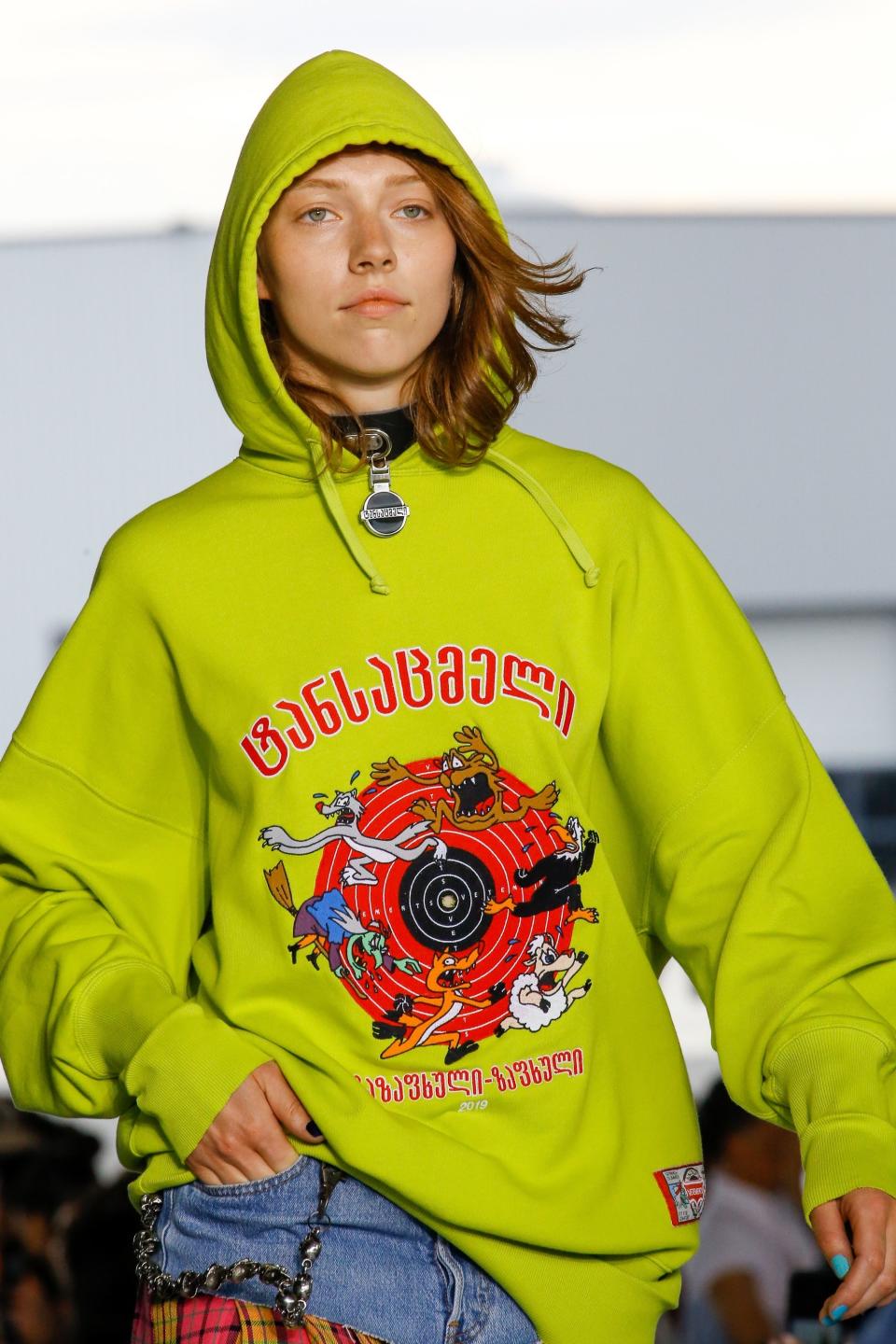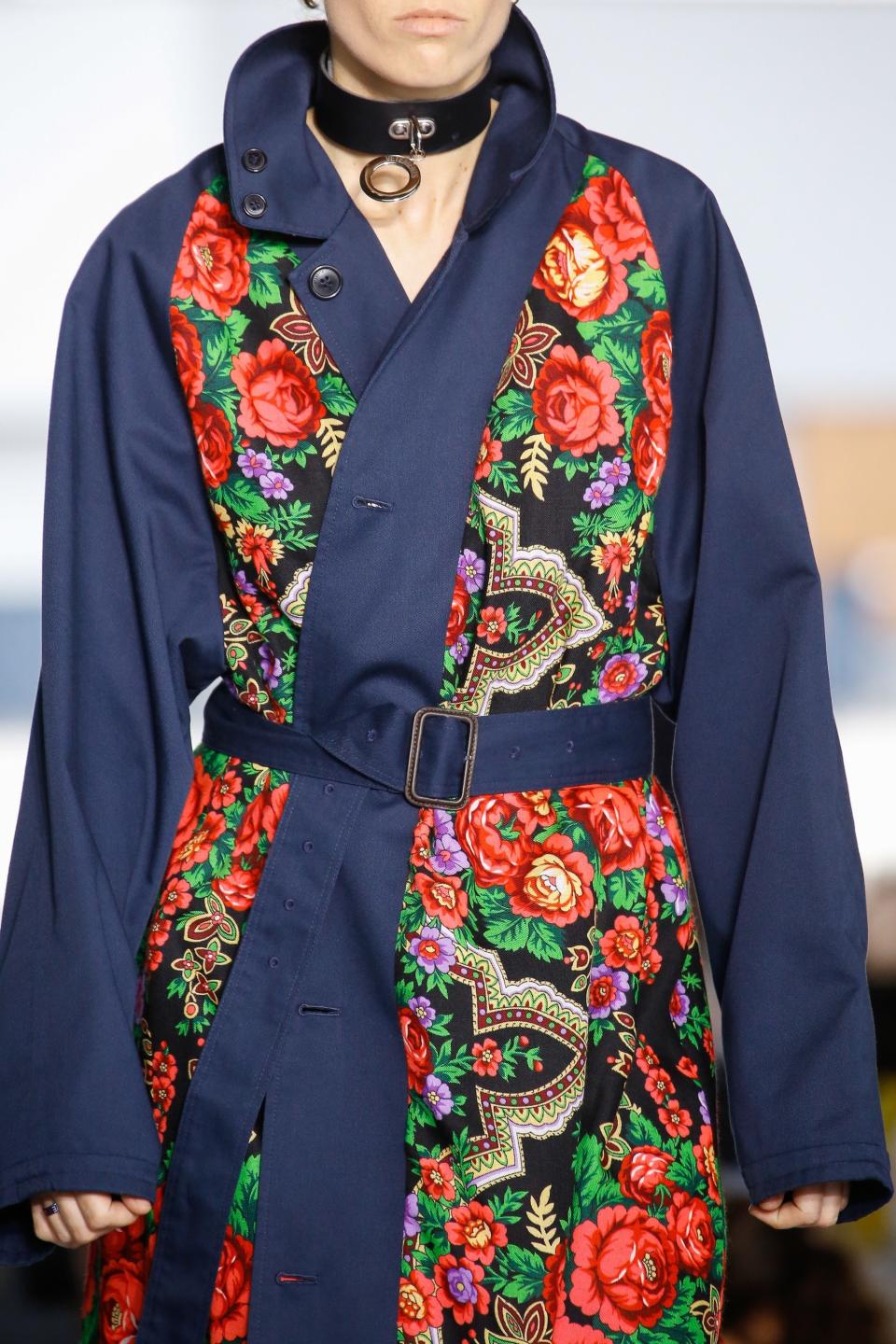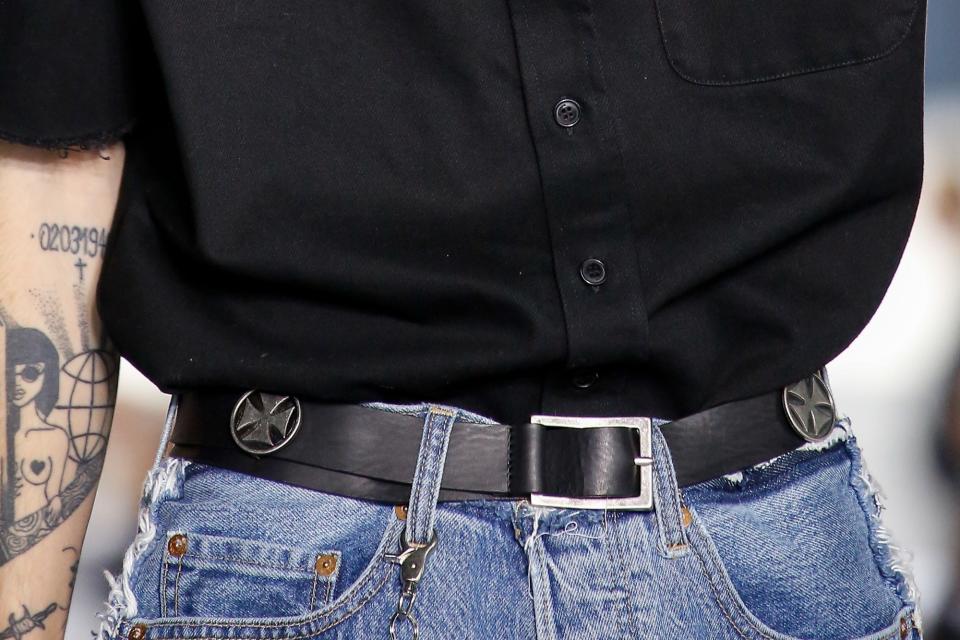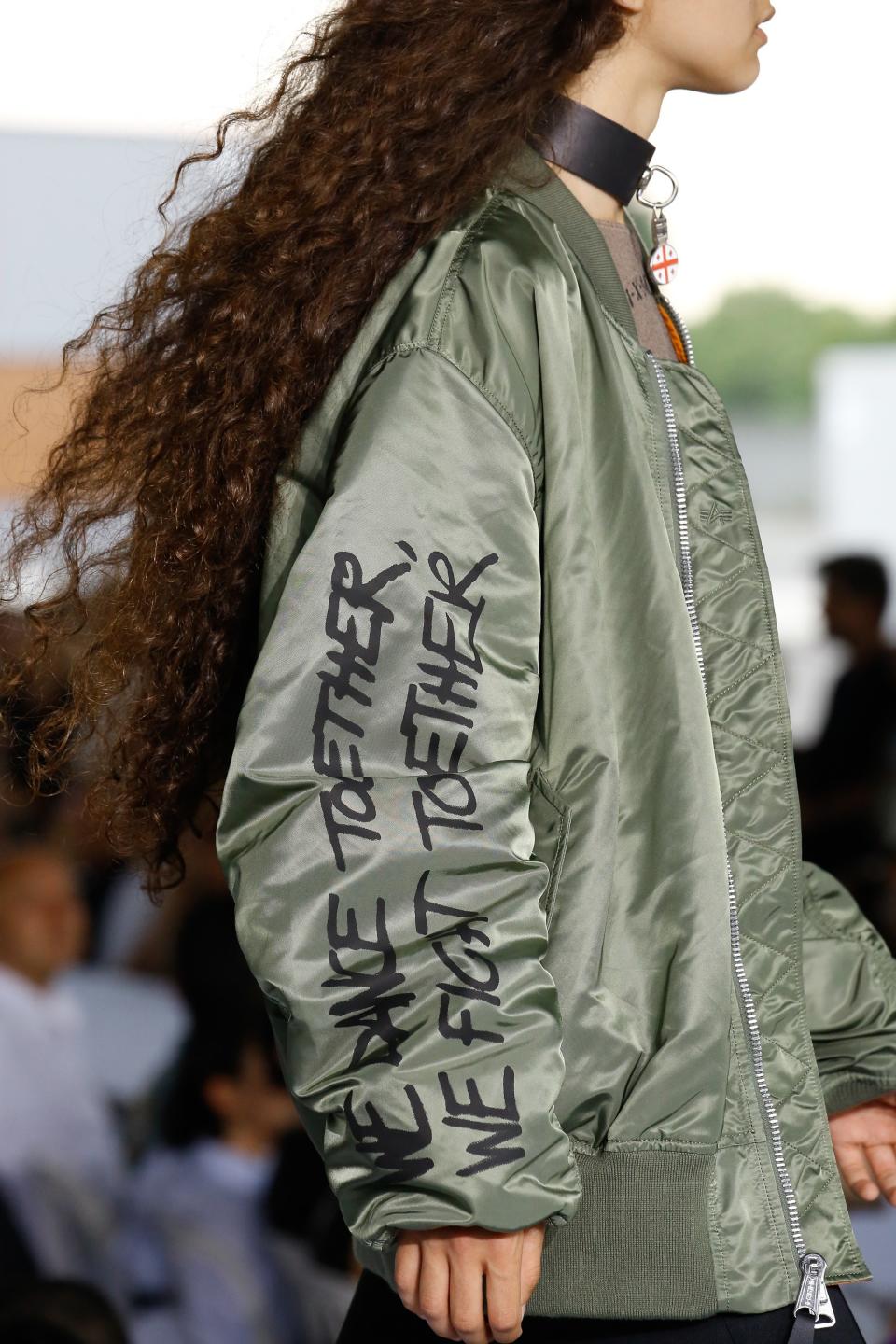Decoding the Georgian and Russian Symbols at Vetements

10-vetements-decode.jpg
Photo: Luca Tombolini / Indigital.tvYesterday, Demna Gvasalia paid homage to his Georgian roots in his Spring 2019 Vetements collection. He touched upon many different emotional topics, including when he fled from war-torn Sukhumi in the early ’90s and the nightclub raids in Tbilisi early this May. Within the collection are several symbols and nods to Georgian and Russian culture. For a breakdown on what they mean, take a look below.

The Georgian flag flies.
The country’s flag, which features a red cross and four small grapevine crosses in each square, makes many appearances throughout the collection, including as a charm on a choker necklace and as a full winter jacket. It’s not the first time a Georgian designer has used their nation’s flag: Both designers Gola Damian and Situationist’s Irakli Rusadze have featured the flag on sweaters and shirts.

01-vetements-decode.jpg
Photo: Luca Tombolini / Indigital.tvGvasalia still loves his Russian rockers.
In 2016, Gvasalia created a limited-edition hoodie dedicated to the Russian rocker Zemfira. This time, he created a band sweatshirt for Viktor Tsoi, the lead singer of the St. Petersburg–based, Soviet-era band Kino. Gvasalia used the famous song “Звезда по имени Солнце,” or “A Star Named Sun,” on the T-shirt, too.

Russian tattoos are now wearable.
Gvasalia transferred Russian prison tattoos onto sheer shirts. There are stars on the collarbones to symbolize thievery, the Russian abbreviation for the Soviet Union (CCCP) on the left forearm, and the common Russki jailbird tattoo of St. Basil on the chest. Sukhumi, a region of Georgia from which Gvasalia fled in the early ’90s, is here, too. In one instance, there is a crying, singular eye on the sleeve that is outlined in barbed wire. Above the eye, a banner reads “Sukhumi” in Georgian. On the neck collar, there are the Roman numerals MCMXCIII, or rather 1993, a nod to the date that Gvasalia left the country.

03-vetements-decode.jpg
Photo: Luca Tombolini / Indigital.tvGvasalia spelled out babushkas’ most hated phrase.
Want to know how to curse in Russian? Take a look at a hoodie and a pair of socks with a certain Russian swear that is the equivalent of “f*ck you” in English.

04-vetements-decode.jpg
Photo: Luca Tombolini / Indigital.tvTourist T-shirts take a meaningful turn.
One of Gvasalia’s Georgian tourist T-shirts came in a friendly rainbow hue, a seeming nod to gay culture. But note: Georgia is a highly Orthodox Christian country with policies that hardly favor the LGBTQIA+ community. In fact, most members are constantly subject to harassment and violence.

05-vetements-decode.jpg
Photo: Luca Tombolini / Indigital.tvThe granny scarf is back.
While babushkas may not be pleased with Gvasalia’s swear word shirts, they will be happy to see that their scarves are making a comeback. The Pavlovo Posad, a traditional Russian shawl, was transformed into skirts and full-blown dresses.

07-vetements-belt-decode.jpg
Photo: Luca Tombolini / Indigital.tvReligion plays a part.
Notice the Iron Crosses on belts and dotted on hoodies? They are actually ancient crosses seen in Georgian churches. A white T-shirt was printed with the Georgian phrase “God Bless Us.” Gosha Rubchinskiy included the Russian version, aka “Save and Protect,” in his Fall 2016 menswear collection.

07-vetements-decode.jpg
Photo: Luca Tombolini / Indigital.tvThe USSR is still strong.
The state emblem of the Soviet Union made a punk rock cameo on a choker necklace. The symbol, featuring the hammer and sickle, was exclusively used in the time of the USSR.

08-vetements-decode.jpg
Photo: Luca Tombolini / Indigital.tv“We dance together, we fight together.”
The phrase comes from the recent clashes in Tbilisi after well-known night clubs, Bassiani and Cafe Gallery, were raided for drugs. In response, the people of Tbilisi held a massive, peaceful rave at Georgia’s parliament for two days, prompting the viral hashtag “We dance together, we fight together.” The jacket also boasts the Georgian phrase for “free zone.”


